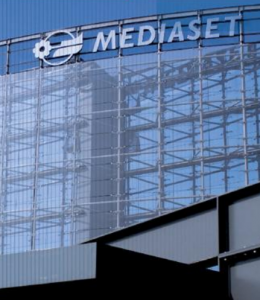
After more than 40 years of operation, DTVE is closing its doors and our website will no longer be updated daily. Thank you for all of your support.
Mediaset hails European court ruling in cloud DVR case
 The EU Court of Justice has ruled that making copies of TV programmes available via the cloud is a “communication to the public” and must be authorised by the copyright holder.
The EU Court of Justice has ruled that making copies of TV programmes available via the cloud is a “communication to the public” and must be authorised by the copyright holder.
In a case that pitted Italian broadcaster Mediaset against UK-based online TV provider VCAST, the court ruled that the 2001 EU copyright directive overrode national rules that allow companies to provide cloud-based recording services in this case.
VCAST offers a service that enables consumers to choose a TV show and, which VCAST then records for playback from the cloud. The company had attempted to seek a ruling from a Turin court that its business was legal because it fell under the ‘private copy exception’ of the directive, which enables individuals to record shows for their own consumption at a later time.
The Italian court found against VCAST but referred the question of whether the ‘private copy exception’ covered commercial enterprises providing a remote recording service in the cloud to the EU Court of Justice.
The Court of Justice has now ruled that “the concept of an ‘act of communication’ refers to any transmission of the protected works, irrespective of the technical means or process used”.
It said that “In the present case, the service provider at issue in the main proceedings records programmes broadcast and makes them available to its customers via the Internet” with the persons targeted constituting “a public”.
It drew the distinction that “the original transmission made by the broadcasting organisation, on the one hand, and that made by the service provider at issue in the main proceedings, on the other, are made under specific technical conditions, using a different means of transmission for the protected works, and each is intended for its public”.
As a result, the court said, “it follows that, without the rightholder’s consent, the making of copies of works by means of a service such as that at issue in the main proceedings could undermine the rights of that rightholder.”
Earlier, presenting the case to the court, advocate-general Maciej Szpunar had opined that the private copy exception “must be interpreted as precluding national legislation which permits the activity of providing, without the copyright holders’ consent, an online recording service for terrestrial television programmes which are freely accessible in the territory of that Member State, where it is the provider of the service, and not its user, that receives the terrestrial broadcasting signal from which the recording is made.”
Szupmar was careful to make clear, however, that “an excessively strict interpretation of [the private copy exception] would not be justified” in that cloud DVR services require the “intervention of a third party, whether the provider of that storage space or another person”.
He said that in the case of VCAST, it was doubtful that the user had “prior lawful access” to the work because the service could be used outside Italy or the catchment area of Italian digital-terrestrial TV, because its users formed ‘a new public’ other than the one targeted by Mediaset and because VCAST provided the service for profit.
“It follows that where VCAST makes available television programmes as part of its recording service, this constitutes an infringement of the copyright of television organisations, and possibly of other rightholders, if it is done without their consent,” he said.
Mediaset immediately hailed the ruling as “a real turning point” and “a milestone in case law”. It said that it was now clear that any company wanting to retransmit TV signals of a competing broadcaster for its own commercial purposes must obtain the prior authorisation of the rightsholder.
Mediaset claims that the ruling will apply to other disputes such as where satellite operators retransmit channels without prior authorisation.


